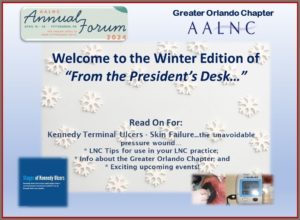
Kennedy Terminal Ulcer – Skin Failure
by
Lydia A. Meyers, RN, MSN, CWCN
The Kennedy terminal ulcer (KTU) (skin failure) is an unavoidable pressure injury and is not looked at lightly. The term “Kennedy terminal ulcer” was first used in 1989, and was coined for Karen Lou Kennedy, at the Byron Health Center, in Fort Wayne, Indiana. The facility’s researchers presented their research at the first National Pressure Ulcer Advisory Panel in Washington, DC, in 1989. (WebMD, 2023).
Nursing home surveyors use F-tags (“F” is for “federal”) when doing CMS (Centers for Medicare & Medicaid Services) surveys. F-tags constitute the system through which federal nursing home regulations are identified in the survey process. F-tag 686 involves wound care and has added a definition of Avoidable and Nonavoidable wounds. (Brandie Elizaith, 2022). The regulatory requirement for F-686 states that a facility is required to ensure that residents receive care to prevent pressure ulcers and do not develop pressure ulcers unless their clinical condition demonstrates that they were unavoidable. (Brandie Elizaith, 2022). The best way to prove that a pressure injury is inevitable is to understand how the wound was created, look at the labs, and examine the patient’s history. Never assume that an injury is avoidable or unavoidable until you have all the facts.
Pathology
Understanding the Kennedy Terminal Ulcer (KTU) requires an essential examination of the body’s physiology. Researchers have found that the pathogenesis of KTU is often misunderstood and misdiagnosed as pressure injuries. Confusion may lead to aggressive care with subpar clinical outcomes that cause further psychological and emotional distress to patients and family members. (Shu-Fen, Li-Yueh, & Yuan-Chun, 2023). These injuries develop suddenly and progress even when standards of care are met. Unavoidable pressure injuries are related to the physiological changes at the end of life. They develop from the bone to the surface, unlike a typical pressure injury that develops from the top of the skin to the bone. It is theorized that the injury results from blood shunted from the skin to vital organs. During reperfusion, free radicals may activate instead of restoring oxygen and washing out waste products, resulting in swelling and inflammation. (White-Chu MD & Langemo, PhD, RN, FAAN, 2012). Researchers acknowledge that there is a need for continued studies to understand exactly how this happens.
Unavoidable, Really?
In the legal world, there must be a duty, proof of breach of standards of care, and causation to claim damages. Review of a case involving claimed pressure injuries, includes examination of evidence of the facility’s response at the beginning of the development and appearance of the discolored area. Did the facility notify the family? Was the doctor notified? Was the care plan updated with appropriate interventions put in place? Were labs drawn to evaluate the patient’s protein levels? Were dietary records provided? Labs are essential in residents on oral feedings and receiving tube feedings. When the intestines are not receiving an adequate blood supply, the absorption of valuable nutrients can cease. All of this information will be essential to ensure proper care is initiated, as these wounds progress quickly. Unlike normal stage 3 or 4 pressure wounds that may go through the stages in weeks or months, the KTUs can progress through the stages within days or weeks.
The evaluation of a pressure wound case involves an in-depth investigation into how these pressure injuries appeared and why, and how the facility responded. When standards of care are met, the facility should not be considered at fault in the case of KTUs. Unfortunately, Kennedy injuries are severe and cause significant distress to the family when a loved one dies. Family education about the pathology and physiology of KTUs may provide some solace.
(Sources for this article are included in the Side Bar.)
Lydia A. Meyers, RN, MSN, CWCN
__________________________________________________________________________________
CHAPTER MEMBER HIGHLIGHT
HENRY JUNE III, BSN, RN
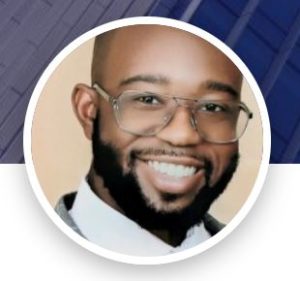
Henry is the CEO of Jackson’s Legal Nursing Group, LLC. He has been a Registered Nurse since 2019, and has worked in a Trauma Med-Surg Unit, Telemetry Med-Surg, and Step-Down units. While working on the Trauma Med-Surg floor, he was a Charge Nurse for two years. At the beginning of 2023, Henry had an idea to open an LNC business based in Jacksonville, FL, that would assist attorneys as well as be a beacon for other nurses to know there was another way to be successful. He received his LNC certificate from Florida Atlantic University. He is a member of the Greater Orlando Chapter of AALNC and the LNC Exchange.
Henry’s is an upcoming LNC business that sponsors the Jacksonville Bar Association, and is looking to make a splash in the community. He strives to provide his clients with a C.L.I.N.I.C. (Commitment, Leadership, Integrity, Nurture, Innovation, and Community) expertise brand that will grow in Jacksonville and spread across the nation. With the potential growth, his company plans on promoting innovation and advocacy in the nursing profession. A short list of services includes attending Independent Medical Examinations (IME); Merit reviews, Medical Records Reviews and Expert Witness opinions, just to name a few. You can learn more about Henry and his company at: https://jacksonslegalnursinggroup.com
__________________________________________________________________________________

LNC Tips
In this edition of our Newsletter, our LNC Tips will include some MUST HAVE information about types of damages to be aware of when reviewing medical records. There are two “main” categories of damages – Economic and Non-Economic.
Economic Damages are measurable as they can be calculated as a monetary amount. Examples of economic damages include medical expenses, DME costs, home modification costs, domestic home services, funeral costs and other related expenses. These damages can be found in billing records, rehabilitation records, prosthetic records, case management records, and household receipts, etc.
Non-Economic Damages are not quantifiable as there is no number that can be calculated to them. These damages include pain and suffering, mental anguish, consortium claims and emotional distress. These damages can be found in psych records, primary care records, plaintiff interview/interrogatories, and spousal medical/psych records.
Fun Fact: Under the Florida Statute 766.118, there is a cap on Non-Economic damages for Practitioners, of $500,000 unless the case involves a death or vegetative state, in which the amount cannot exceed $1 Million. For practitioners of emergency services, there is a $150,000 cap per claimant and the total Non-Economic damages recoverable by all claimants from all such practitioners shall not exceed $300,000.
Alyssa Brandeberry, RN, LNCC
Greater Orlando Chapter of AALNC, Secretary
_______________________________________________________________________________

LNC PROFESSIONAL DEVELOPMENT
AALNC and Chapters – GoTo Source
AALNC and the Chapters are THE GO TO sources for networking and professional development in the field of legal nurse consulting. Want to learn of career opportunities? Want to stay up to date with the LNC industry trends? Want to hone your LNC skills and learn new ones? Then go to AALNC at https://aalnc.org and join now! Then go to https://orlandoaalnc.org and join our Chapter! And you can join ALL of the AALNC Chapters – for unlimited networking!
WE ARE NEAR YOU! Maybe not geographically, but through your computer or phone. The Greater Orlando Chapter has members in 30 States, Puerto Rico, and Canada! SINCE 2014, The Greater Orlando Chapter’s live Chapter Meetings with CE Programs have been broadcast virtually! Members and guests have been attending from all over the Country since then! Because of COVID, since 2020 all of our CE Programs have been virtual only.
Greater Orlando Chapter Membership Cycle goes from May to May of each year, with membership renewal being May 31. With this cycle, members who joined in 2024, will renew their membership NLT May 31, 2025. CONTACT US:
Email us at: info@orlandoaalnc.org
Or visit us at: https://orlandoaalnc.org
______________________________________________

ABOUT THE GREATER ORLANDO CHAPTER OF AALNC
The American Association of Legal Nurse Consultants (AALNC) was founded in 1989, as a not for profit membership organization dedicated to the professional enhancement and growth of registered nurses practicing in the specialty of legal nurse consulting. Chapter development quickly followed. The Orlando community was rich with nurses already practicing in the field of legal nursing. This group of committed professionals quickly became members of the new national organization and recognized the need for a local chapter. The Greater Orlando Chapter of AALNC, founded in 1989, was the second chapter formed under the new national organization. The Chapter was begun in support of AALNC’s mission, by providing networking opportunities, mentoring and support to nurses through professional development and education – a mission that is continued to this day.
CONNECT WITH US
Connect with us on LinkedIn
Check us out at: https://orlandoaalnc.org
Contact us at: info@orlandoaalnc.org
_______________________
Resources for Kennedy Terminal Ulcer
1. Brandie Elizaith, M. L. (2022, November 11). Ftag of the Week-F686 Treatment/Svcs to Prevent/Heal Pressure Injuries (Pt. 1). Retrieved from CMS Compliance Group, INC.: https://cmscompliancegroup.com/2022/11/11/ftag-of-the-week-f686-treatment-svcs-to-prevent-heel-pressure-injuries-pt1/
2. Schank, RN, MSN, ANP, CWOCN, J. E. (2009, September). Kennedy Terminal Ulcer: The “Ah-Ha!” Moment and Diagnosis. Retrieved from Wound Management & Prevention: http://woundcareadvisor.com/ostomy-101-colostomy-ileostomy-and-urostomy/
3. Schank JE. The Kennedy Terminal Ulcer – Alive and Well. J Am Coll Clin Wound Spec. 2018 Feb 26;8(1-3):54-55. doi: 10.1016/j.jccw.2018.02.002. PMID: 30276128; PMCID: PMC6161640. https://www.ncbi.nlm.nih.gov/pmc/articles/PMC6161640/
4. Shu-Fen, L., Li-Yueh, W., & Yuan-Chun, L. (2023, April). {Management of Patients with Kennedy Terminal Ulcer: Challeges and Best Practices}.
5. Specialist, J. A. (2017, December 14). The Death of the Kennedy Terminal Ulcer. Retrieved from National Library of Medicine: https://www.ncbi.nlm.nih.gov/pmc/articles/PMC6161629/
6. WebMD Editorial Contributors. (2023, July). What is Kennedy Terminal Ulcer? Retrieved from Web MD, https://www.webmd.com/skin-problems-and-treatments/what-is-kennedy-terminal ulcer
7. White-Chu EF, Langemo DK. Skin failure: identifying and managing an unrecognized condition. Ann Long Term Care 2012;7:28–32.
_____________________________
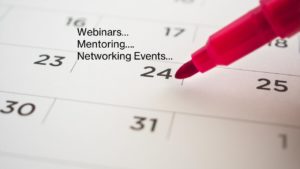
Be sure to check out our new publication, “SAVE THE DATES.” This new publication includes LNC education programs offered by AALNC, and ALL of the AALNC Chapters! We are so excited for this joint Chapter activity! Watch for the next edition, coming to your inbox soon! In the meantime:
1) Watch for the Announcement for our March 19, 2024 program, “Babies, Bleeds, Bagging, and Bougies..Airway Atrocities & Lessons Learned”, presented by Scott DeBoer, MSN, CPEN, EMT-P.
2) Don’t forget our On-Demand Webinars. We have 15 On-Demand Webinars which are free for Chapter members and only $15 for non-Chapter members.
- Bay Area Chapter of Northern California at: https://www.bacn.org
- New Jersey Chapter (New Website coming soon)
- Pittsburgh Chapter at: https://aalncpittsburgh.org
- Tampa Bay Chapter at: https://tbaalnc.org
- West Virginia Upper Ohio Valley Chapter at: https://wvuov-aalnc.com
- Pacific Northwest Chapter at: https://www.pnw-aalnc.com
AND, if you have not already done so, REGISTER NOW for AALNC Forum 2024 in Pittsburgh! And you don’t want to miss Pre-Forum which will be a Mock Trial – with Jury! Wow!
CONTINUING EDUCATION INFO
The Greater Orlando Chapter of AALNC is an approved provider of Nursing CE through the Florida Board of Nursing and CE Broker, and approved by the following States: Arkansas, District of Columbia, Florida, Georgia, Kansas, Kentucky, Mississippi, New Mexico, South Carolina and West Virginia. We report CE directly to CE Broker in these states. For attendees from other States, we provide required documents for self-reporting CE to State Boards of Nursing.
___________________________
LNC LAUNCHPAD – Q&A with Greater Orlando Chapter LNCs
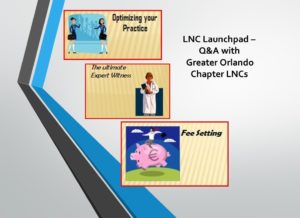
In 2021 we started a new program for members, which we call “LNC Launchpad – Q&A with Greater Orlando Chapter LNCs.” This is a 1.5 hour session to provide guidance, answer questions, and suggestions. We limit the event to 10 participants, so we can mentor each attendee – whether new to the LNC practice or experienced and ready for a change – we are there for you! The 2024 dates have been selected and loaded on ur website. Registration for the May 14, 2024 session will open on the 1st of May. Stay tuned! Upcoming dates are:
1) May 14, 2024
2) September 10, 2024
3) November 12, 2024
____________________________
MEET THE 2024 GREATER ORLANDO CHAPTER OFFICERS
AND DIRECTORS
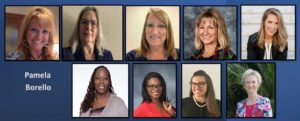
President: Robin Axtell, BSN, RN, LNCC
President Elect: Michelle Gaines, MNA, RN, CRNA
Immediate Past President: Tory Palivoda, BS, RN, LNCC
Secretary: Alyssa Brandeberry, RN, LNCC
Treasurer: Patty Mitchell, BSN, RN, CLNC
DAL: Pamela Borello, BSN, RN, CNOR, CNAMB, CSSM(e)
DAL: Kenyetta Christmas, MSN, RN, ACNP-BC, CLNC
DAL: Christine Dorman, DNP, APRN, ACNP-BC, CCRN
DAL: Jillian Talento, BSN, RN, CEN, LNCC
DAL: Judy A. Young, MSN, MHL, RN, LNCC
_____________________________

